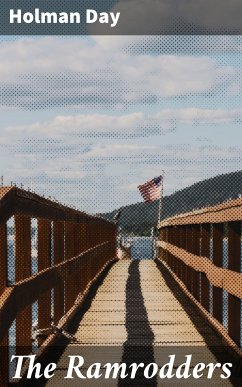In "The Ramrodders," Holman Day crafts a gripping narrative that explores the tumultuous world of cattle ranching in the American West during the late 19th century. This novel intricately portrays the struggles between ranchers and the encroaching forces of civilization, employing a vivid and dynamic prose style that captures the rugged beauty of the landscape and the volatile human emotions it evokes. Day's storytelling weaves in themes of loyalty, masculinity, and the inexorable clash between progress and tradition, situating the work within the broader context of American frontier literature, where the challenges of taming nature reveal deeper truths about the human condition. Holman Day, a pivotal figure in early 20th-century American fiction, was deeply influenced by his own experiences in the West. Growing up in Maine, Day's adventurous spirit and fascination with frontier life propelled him into writing stories that encapsulated the grit and resilience of those who dared to carve a life from the wilderness. His background, steeped in a rich tapestry of American folklore and historical events, lends an authenticity that resonates throughout "The Ramrodders." This novel stands as a compelling exploration of the human spirit and the complexities of frontier life. I highly recommend "The Ramrodders" to readers who appreciate nuanced character development and a vivid sense of place. Day's work not only entertains but also invites reflection on the societal changes of his time, making it a worthwhile addition to the canon of American literature.
Dieser Download kann aus rechtlichen Gründen nur mit Rechnungsadresse in A, B, BG, CY, CZ, D, DK, EW, E, FIN, F, GR, H, IRL, I, LT, L, LR, M, NL, PL, P, R, S, SLO, SK ausgeliefert werden.
Hinweis: Dieser Artikel kann nur an eine deutsche Lieferadresse ausgeliefert werden.









